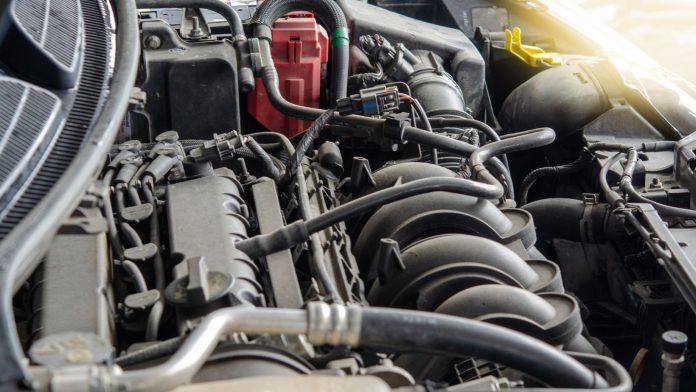A fuel pump is an essential component of a car’s engine, and it’s responsible for delivering fuel from the gas tank to the engine. Without a working fuel pump, your car won’t have enough fuel to run. Understanding how a fuel pump works and what can cause it to malfunction can help you maintain your vehicle and avoid costly repairs.
In this article, we are going to discuss fuel pumps in full detail. We will let you in on the working of a fuel pump and the common reasons because of why fuel pumps usually become faulty or go bad. We will also analyze and see that there are different types of fuel pumps that work in different ways. Stay till the end!
How do Fuel Pumps work?
The fuel pump is designed to pressurize the fuel supply so that it can be delivered through the injectors or carburetor into the engine’s cylinder head. It consists of three components: an electric motor, an impeller, and a pressure regulator valve. The electric motor helps draw gasoline up from the tank through a suction pipe and sends it into the impeller chamber at high speeds. The impeller then propels the gasoline outwards through small jets, where it passes through the pressure regulator valve and enters the engine’s intake manifold.
Common Reasons for Malfunctioning Fuel Pumps
The most common reason for a malfunctioning fuel pump is dirt or debris in its filter cartridge, which prevents it from drawing enough gasoline up from the tank. Another common problem is worn-out wiring in its electrical system, which will prevent it from receiving power from your car’s battery. Other possible causes include failure of its seals or valves, as well as damage caused by road salt or rust due to exposure to moisture over time.
Different Types of Fuel Pumps
Depending on your vehicle, there are various types of fuel pumps available; from mechanical to electric and even hybrid models, the choice can be overwhelming. Fortunately, deciding between them is simpler than you might think; it comes down to two main things: the model of your car and its requirements when it comes to fuel delivery.
Mechanical pumps- tend to be more reliable due to their lack of electronic components but provide less instant power, whereas electric pumps allow for greater customization but come with an added risk of failure due to electrical faults.
Hybrid pumps- offer a mix of both worlds, ensuring reliability while allowing more precise control over fuel delivery. Whatever your specific needs may be, there’s definitely a fuel pump out there suitable for you!
Identifying Problems with Your Fuel Pump
A few signs that your fuel pump may be having problems include reduced performance when accelerating or jerking/stalling while driving. You may also notice that your car takes longer than usual to start up after being parked for some time. If you suspect that there’s something wrong with your vehicle’s fuel pump, have a qualified mechanic inspect it right away so they can diagnose any potential issues and make necessary repairs before they become more serious—and expensive—problems down the line.
Conclusion
Knowing how your car’s fuel pump works and what can cause it to malfunction are both important aspects of owning a vehicle. If you experience symptoms related to a bad fuel pump, contact a qualified mechanic immediately so they can determine if there are any underlying issues with your vehicle’s fuel pump that need attention before they become more serious – and costly. Taking measures now will help ensure that you get many miles out of your automobile!




